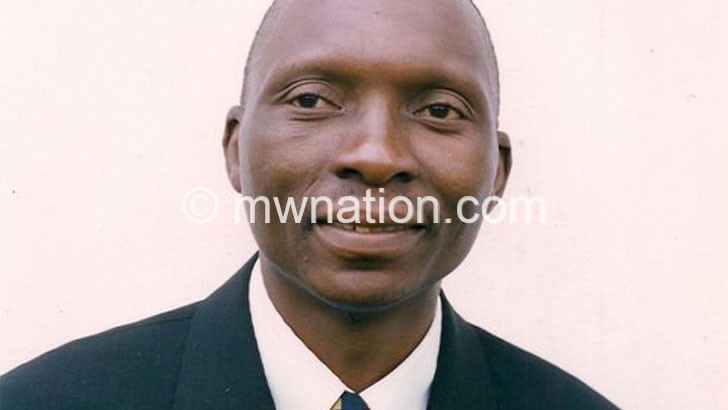‘Fighting corruption is not the easiest task of any govt’
How would you assess the President’s national address in response to the Anti-Corruption Bureau’s report?
The President, understandably so, was not amused, and was disappointed with the manner in which the report was packaged. He is acutely aware that Malawians expect and want him to act decisively on the war against corruption cartels and hoped the ACB report he demanded last month would accord him the legitimate basis to crackdown on corruption cartels, which could earn him the principal anti-corruption champion tag. He found the report wanting in many aspects. Objective observers would share his assessment that not only was the report limited in scope, spanning the period from 2021 without paying due attention to numerous corrupt deals in public institutions that are reported to have occurred between 2008 and 2020, and for which ACB is deemed to have sufficient knowledge.

What message was the President sending by rating the report ‘substandard’?
For a while, the hype and claims from ACB generated the narrative that suggested the anti-graft body was geared to let all systems go on corruption cartels, but was being held back by the Executive arm of government. The Executive was portrayed as a monumental log in the fight against corruption. It is the image and narrative the President, it may be argued, is highly charged to challenge.
Was the President justified to describe the ACB report as ‘substandard’?
We need to appreciate that the President is aware of his electoral platform and that one central purpose for which he was hired by the electorate desperate for regime-change is to wage a relentless and decisive war against corruption. Suffice to say for a while Malawians have demanded flagging up of key players in the country’s huge corruption industry as part of the strategy to fight corruption. The President had anticipated the report would accord him a legitimate platform from which he could not only respond to the popular demand for naming and shaming, but also take executive decisions critical for a game-changing signal to players in the corruption industry.
What is your assessment of ACB based on the submitted report?
First, the consistent flouting of legally sanctioned operational norms regardless of its moral merit or assumed greater good motive is generating unwarranted tension between the ACB and the legitimate supervisory authority. Second, one may be forgiven to speculate that the report is largely an offshoot of investigation by the British National Crime Agency. The fact that the report’s time-frame neatly coincides with the period Sattar is reported to have been placed on the radar by British investigators lends credence to the speculation. Without undermining the significance of collaboration with foreign authorities in ventures of that nature and magnitude, the observation suggests ACB is yet to account to Malawians in a convincing fashion in respect of work that can entirely be credited to the anti-graft body, which brings us to the third and, perhaps, the most significant concern. Deliverables from ACB have been few and far between. To be fair to ACB, there is no shortage of will from the anti-graft body to deliver on its institutional mandate, but there are indications of deficiencies which need objective scrutiny by both the Executive and the general public.
What advice would you give to enhance teamwork between the Executive and ACB?
I sense a huge gap in expectations between the two sides. There is need for a shared sense of purpose and understanding on all critical parameters. Not least such parameters should include but not limited to realistic quantity and quality of investigation and corresponding reports, time-frames for completion, success rate and reporting intervals. I am of the view that should the President, Minister of Justice, Attorney General, Director of Public Prosecutions and Director General of ACB as a collective define and share expectations on key parameters, the work environment in which corruption is being fought will have been improved significantly. Shared expectations facilitate role clarity and create an enabling work environment for timely deliverance of either mutually or collectively desirable outcomes.
Is the war against corruption winnable in Malawi?
When corruption has spread to all tentacles of the society’s social fabric as is the case in Malawi, fighting the vice is not the easiest of tasks for any administration. It will take the mental fortitude of key authorities, citizen activism and proactive media, among other variables, to tame the increasingly insatiable key players in the grand corruption industry and petty corruption addicts. The need to make corruption highly costly regardless of its type (grand or petty) will be a game changing strategy. Furthermore, it is apparent that ACB is deficient in many aspects and requires urgent technical support from within and outside national borders if the war against the vice is to be won decisively.





